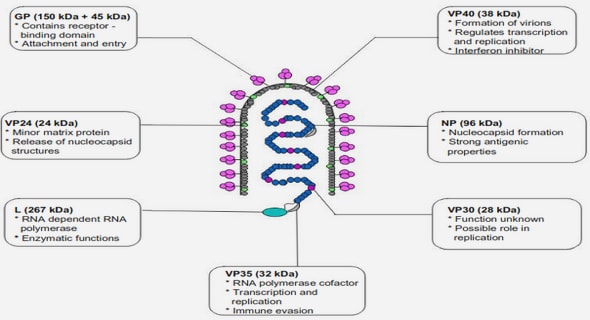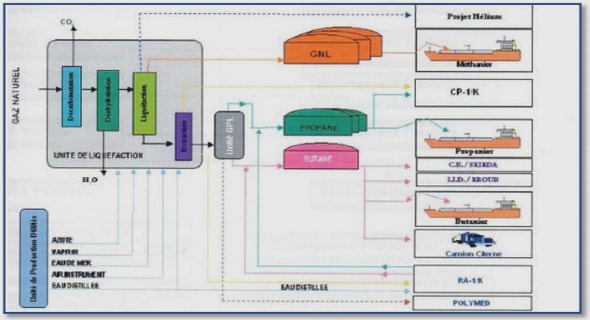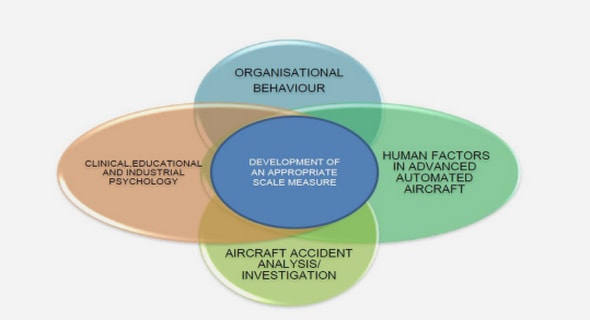Get Complete Project Material File(s) Now! »
CHAPTER FOUR IMPLEMENTING A PROCESS APPROACH
INTRODUCTION
In Chapter Two the possible impediments that may affect the implementation of a process approach, were indicated. To encourage biology teachers to implement a process approach when teaching biology, the possible advantages of this approach for the learner, the teacher and the new education system (as advocated by Curriculum 2005) will be discussed in this chapter. The criticism against a process approach and reasons why biology teachers may not use such an approach, will also be addressed.
The last part of this chapter will describe teachers’feelings; knowledge of such an approach; their views; the learners involved and the requirements necessary to implement a process approach. Different methods that can be used to assist biology teachers to implement changes will also be indicated
ADVANTAGES OF A PROCESS APPROACH FOR THE BIOLOGY LEARNER
Arena (1996:35) and Mossom (1989: 149) state that a process approach provides the learner with both the will and the skill for a lifetime of achievement and learning. By implementing a process approach in the biology classroom, the teacher and learner can experience both educational and real-life benefits. The following advantages of a process approach can be identified.
Active learner involvement
Generally the traditional teaching methods allow only a small percentage of learners to be involved in classroom discussions (Mcintosh 1995: 17). However, with a process approach group work is encouraged and learners are given the opportunity to investigate the environment on their own or with available resources and good classroom management (Preethlall 1996: 142). Group work, based on Inquiry activities, ensures that all learners are actively involved.
By actively participating in biology inquiry activities, learners acquire ways of investigating that enable them to make decisions from what they observe (Du To it 1994:26 and Jakupcak, Rushton, Ja ku peak & Lundt 1996:41-46). The ability to investigate and to make decisions, provides a foundation for a strategy that a learner can use when he/she encounters problems in everyday life.
Active involvement in inquiry activities also enables learners to recognise the tentativeness of ideas and to be flexible to change to new ideas (Jakupcak et al. 1996:43 and Watson 1990:48). The concepts that learners form to help their understanding of the world around them, changes as experience adds more evidence that may support or contradict a previous understanding. As learners become older and their ideas closer to those of ad u Its, they change less often (Harten 1993:76). Furthermore, the involvement of the learner in a process approach where material activities are used, tends to free the learner from the traditional rewards and punishment environment (Fleer & Hardy 1997: 15-17). The learner becomes the marker of rewards for herself/himself.
Learners work co-operatively
A process approach motivates learners irrespective of abilities, race, sex or nationality to work together (Carin & Sund 1997:51; Parker 1985:44-46 and Slavin 1987: 53-63). Hickman and Kennedy ( 1989: 741); Sa pon-Shevi n (1998: 15-16) and Watson (1991: 141) argue that by working co-operatively learners’dependence on the biology teacher might decrease and at the same time learners’responsibility for their own learning might increase depending on the methods that the teacher uses.
In a sense, co-operative learning supports the construction of individual knowledge in a number of ways. As members of a group are required to explain or defend their viewpoint, learners will more likely construct a deeper understanding because they will need to evaluate, integrate and elaborate their existing knowledge (Brown, Collins & Duguid 1989:40; Hatano & Inagaki 1987:76; Kempa & Ayob 1991:341-354 and Roth & Roychoudhury 1993: 127). When using a process approach, group work and self-assessment motivate learners to become involved contributors in the processes affecting their own educational progression and that of their peers.
Co-operative learning empowers learners by making them responsible for the acquisition of information to solve problems and complete specific tasks.
Development of communication skills
A process approach provides a means of overcoming the possible language barriers that may arise when traditional teaching approaches are used particularly in the multi-cultural schools in South Africa. According to a study conducted by Germann (1991:243-247) on Grade 9 and 10 biology learners in New England, language had no significant direct effects on the development of learners’process skills. According to this research finding the researcher is of the opinion that language differences in a class might not affect the implementation of a process approach. Limited English proficient learners can communicate where possible in their native language when involved in group work. Group work involving inquiry activities enables learners to communicate ideas and findings at all levels (Arena 1996:36 and Ruiz-Primo & Shavelson 1996: 1045-1063). As learners are free to communicate in the biology classroom during investigations, learners learn to communicate effectively in a variety of situations and to a range of audiences. When learners obtain, present and respond to information, they are actively improving their communication skills (Parker 1985:53 and Schneider & Lumpe 1996:87). Working in groups encourages learners to obtain ideas from one another by communicating, recording, writing and copying one another’sexperiments during investigations (Anastasiou 1996: 51; Higher Education Quality Council 1998:1-2 and Mcintosh 1995:17). Projects based on a process approach enable the learner to complete a task, by communicating biology knowledge to other learners.
Development of higher order process skills
A process approach, where open-ended inquiry activities are used, results in the development of higher order process skills (Hickman & Kennedy 1989: 742). These include identifying variables, interpreting data, hypothesising, defining and experimenting (Schneider & Lumpe 1996:81-82)Inquiry activities permit learners to pursue questions of their own interest within given content areas and to seek answers to thes.e questions by planning and designing experiments, by collecting the data, and by transforming and interpreting the data (Arena 1996:36 and Berge 1990:747). In this context the skills seem to develop holistically without being taught explicitly.
DECLA.RATION
SUMMARY
DEDICATION
ACKNOWLEDGMENTS
CHAPTER ONE: ORIENTATION TO THIS RESEARCH
1.1 INCENTIVES FOR THIS INVESTIGATION
1.2 THE PROBLEM
1.3 AIMS AND OBJECTIVES OF THIS STUDY
1.4 RESEARCH METHODOLOGY
1.5 PROGRAMME OF STUDY
CHAPTER TWO: FACTORS WHICH COULD CONTRIBUTE TO INEFFECTIVE BIOLOGY EDUCATION
2.1 INTRODUCTION
2.2 PROBLEMS IN BIOLOGY EDUCATION
2.3 SUMMARY
CHAPTER THREE: REASONS FOR USING A PROCESS APPROACH IN THE TEACHING AND LEARNING OF BIOLOGY
3.1 INTRODUCTION
3.2 WHY A PROCESS APPROACH?
3.3 THEORETICAL FOUNDATION OF A PROCESS APPROACH
3.4 DEFINING A PROCESS APPROACH
3.5 SUMMARY
CHAPTER FOUR: IMPLEMENTING A PROCESS APPROACH
4.1 INTRODUCTION
4.2 ADVANTAGES OF A PROCESS APPROACH FOR THE BIOLOGY LEARNER
4.3 ADVANTAGES OF A PROCESS APPROACH FOR THE BIOLOGY TEACHER
4.4 A PROCESS APPROACH AND CURRICULUM 2005
4.5 CURRICULUM 21
4.6 DISADVANTAGES OF A PROCESS APPROACH
4.7 CHANGING TO A PROCESS APPROACH
4.8 SUMMARY
CHAPTER FIVE: METHODS THAT CAN CONTRIBUTE TO THE
IMPLEMENTATION OF A PROCESS APPROACH
5.1 INTRODUCTION
5.2 DEVELOPING BIOLOGY LEARNERS’ PROCESS SKILLS
5.3 PROBLEM-SOLVING AS AN INSTRUCTION STRATEGY TO DEVELOP PROCESS SKILLS
5.4 INSTRUCTIONAL METHODS TO DEVELOP PROCESS SKILLS
5.5 SUMMARY
CHAPTER SIX: DESIGN OF EMPIRICAL INVESTIGATIONS
6.1 INTRODUCTION
6.2 REVIEW OF THE PROBLEM
6.3 RESEARCH DESIGN
6.4 DEUMITATION OF THE STUDY AREA
6.5 SUMMARY
CHAPTER SEVEN: FINDINGS OF EMPIRICAL INVESTIGATION
7.1 INTRODUCTION
7.2 FINDINGS OF QUESTIONNAIRE SURVEY
7. 3 SUMMARY
CHAPTER EIGHT: FINDINGS OF INTERVIEWS
8.1 INTRODUCTION
8.2 FINDINGS OF INTERVIEWS’ SURVEY
8.3 SUMMARY
8.4 CONCLUSIONS
CHAPTER NINE: PRINCIPAL FINDINGS, RECOMMENDATIONS AND IMPLICATIONS
9.1 INTRODUCTION
9.2 PRINCIPAL FINDINGS FROM THE UTERATURE STUDY
9.3 PRINCIPAL FINDINGS FROM THE EMPIRICAL RESEARCH
9.4 EMERGING FROM THIS STUDY
9.5 RECOMMENDATIONS AND IMPUCATIONS
GET THE COMPLETE PROJECT
FACTORS INFLUENCING THE IMPLEMENTATION OF THE PROCESS APPROACH IN BIOLOGY SECONDARY EDUCATION


